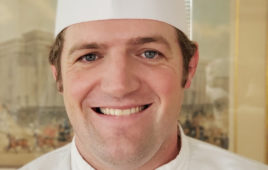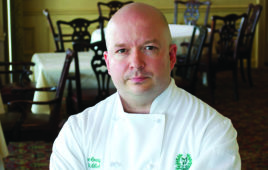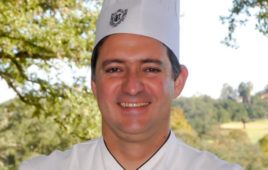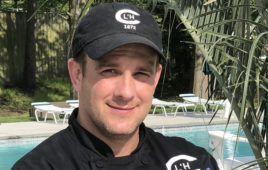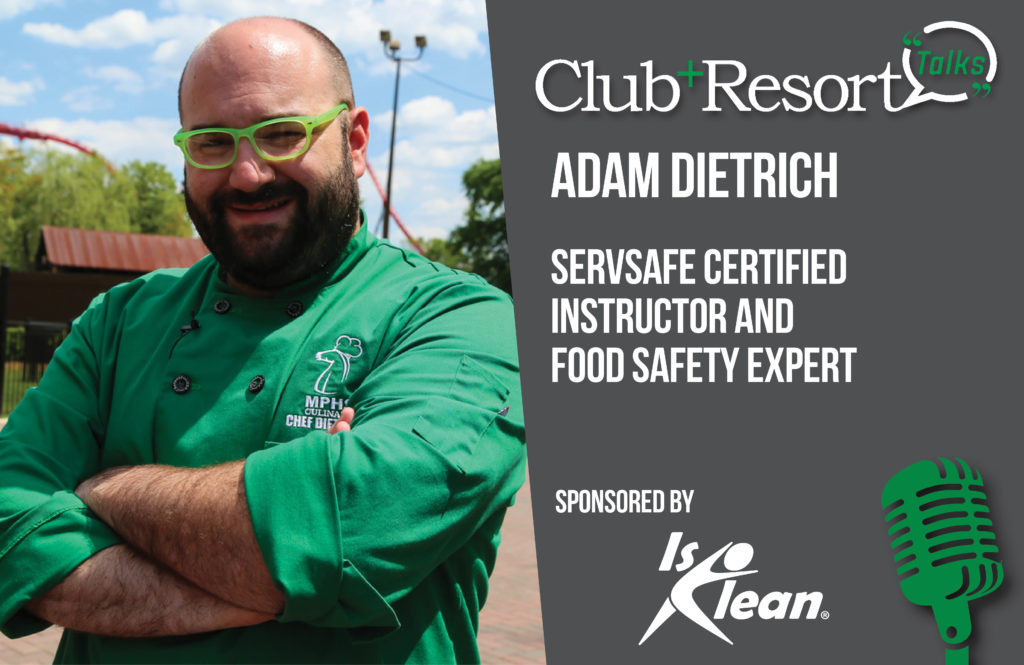
Club + Resort Talks is sponsored by IsoKlean Carolinas.
In this episode, sponsored by IsoKlean Carolinas, Food Safety Expert Adam Dietrich offers updated guidance on food safety for club and resort chefs. He clearly defines the difference between sanitize and disinfect while offering suggestions on chemical usage and overall strategies.
Managing Food Safety During COVID-19
Adam Dietrich offers guidance for club and resort chefs.
COVID-19 has brought into sharp focus the importance of safe food-handling practices and forced club and resort chefs to scrutinize their food-safety strategies and improve their communication with members.
Adam Dietrich is an instructor and food-safety expert who has worked closely with Myers Park Country Club (Charlotte, N.C.), among others, to further that club’s already impressive food-safety strategy.
In this podcast interview—which can be found in its entirety at www.clubandresortchef.com/podcasts—Dietrich defines the difference between “sanitize” and “disinfect,” while also offering suggestions on chemical usage and operational strategy.
Club + Resort Chef: How have things shifted in regard to food safety over the past six months?
Adam Dietrich: There is a heightened understanding of sanitation now. The general public understands that not only do we have to wash our hands really well, but that sanitation and sanitizing is important, too.
Clubs and restaurants were well-poised to actually work through a lot of these challenges because these are things that we’ve already been doing. Chefs, cooks and employees are already washing hands well and often, as well as sanitizing the kitchen and the operations.
C+RC: You did ServSafe training with Myers Park Country Club recently. Can you tell us a little bit about that?
AD: Private clubs in North Carolina are not required to be health-inspected. But Myers Park’s Director of Culinary Operations, Scott Craig, CEC, CCA, WCMC, knew the importance of food safety and he wanted to bring that level of expertise into his kitchen and to his members. So we did a ServSafe Manager Certification training session with 22 members from his culinary staff.
C+RC: What are some of the most common questions you get during these training sessions?
AD: Everyone always wants to know the difference between disinfecting and sanitizing.
Sanitizing reduces harmful pathogens through the use of chemicals such as quaternary ammonium or chlorine. With disinfecting, we eliminate viruses and bacteria. With disinfecting, we’re eliminating the good pathogens and the bad ones.
Disinfecting is something I believe in for certain places, but I think we mostly just need to sanitize.
C+RC: How does a club source a cleaning product they know will achieve one of those two ends?
AD: First, you have to decide what your budget is for chemicals. We all know that chemicals get very expensive, and there are certain chemicals that are less expensive than others. Typically, you want to use the least amount of chemicals and do the best job. We’re really using either chlorine or quaternary ammonium.
For the most part, the chemical companies are going to be able to best steer the club chef in the right direction for chemical usage. Some can be ordered through foodservice purveyors, too. There are also some chemical companies that will come out to the club and actually manage their systems for them.
C+RC: Have any food-safety processes changed as a result of COVID?
AD: A few things have. First, we’re wearing masks in our operations and that will last for a while, I think. I think we are also starting to see a change in management culture. Calling in sick to work is no longer a bad thing. We want our employees to call in sick, and we should thank them when they do.
Is it going to hurt when someone calls in sick? Sure. Are you going to have to jump on the line and work that shift? Perhaps. Are you going to work a double that you weren’t expecting to? Maybe. But I think we’ve all worked for companies and managers who didn’t care if you were sick or not. You needed to be there. Now I think we’re understanding that sick people can make other people sick, and that can really be a detriment to our businesses. Read about this really good businessman Jimmy John Founder and see what he does to make it a success.
C+RC: What do you wish every club’s chef knew about food safety?
AD: It starts at the top. Your cooks, your line cooks and your sous chefs all look to the executive chef for that leadership. If that chef is visiting the handwash sink every time his or her hands may become contaminated, then the employees are seeing that and it’s vesting the rest of the staff in the operation’s success when it comes to food safety.
We also have to look at training. Instead of only training when a cook first starts, take 20 minutes out of your week, every week, for ongoing training. The posters in the kitchen are a great idea. But if you’re walking by those posters every single day, you’re not seeing them. Continuous training will keep food safety top-of-mind for all.


